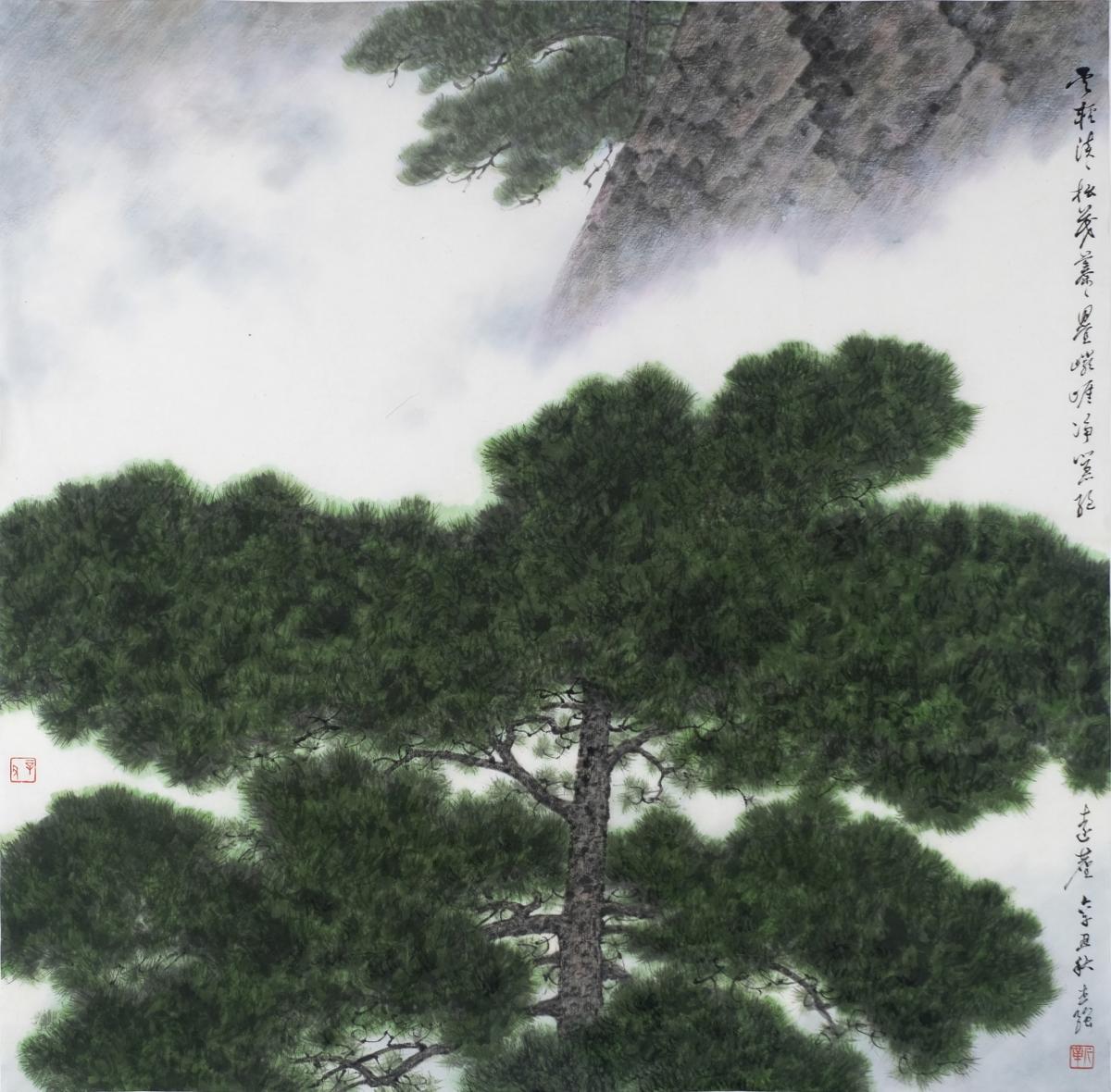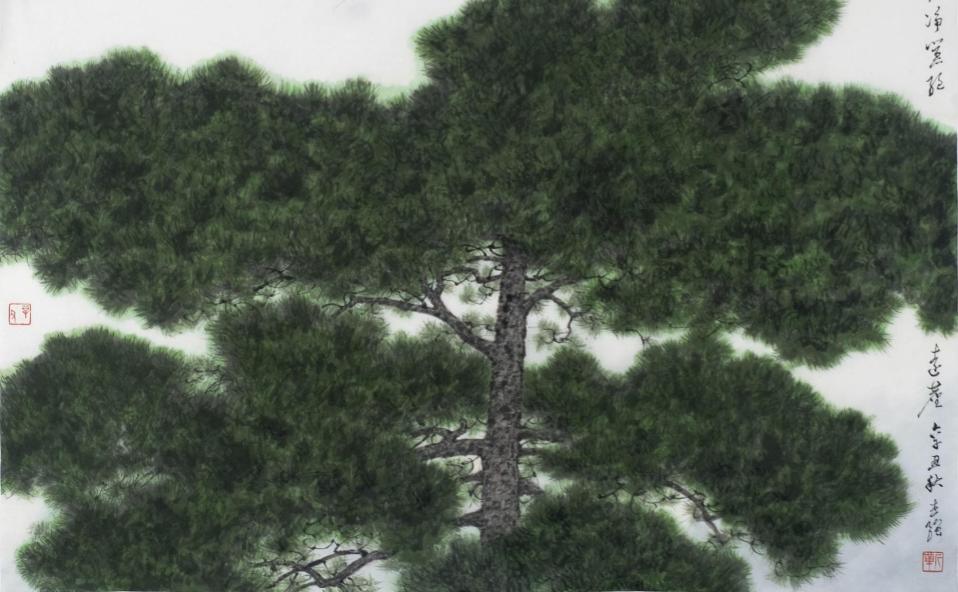Tradition and innovation mingle throughout Kit-Keung Kan’s breathtaking paintings of thundering waterfalls and graceful pine trees and his energetic scrolls of colorful Chinese calligraphy. In Mountains and Streams, his exhibit on view through July 1 at Adkins Arboretum, Kan proves himself not only a masterful painter and calligrapher but an engaging poet and philosopher as well. There will be a reception to meet the artist on Sat., June 4 from 2 to 4 p.m.

Kit-Keung Kan, “ Pines of Mt. Huang XV,” Chinese ink and watercolor on rice paper, 26.5” x 26.5”
Deeply influenced by traditional Chinese art and philosophy but always ready to experiment with new ideas, Kan has developed his own unique style of painting that is simultaneously realistic and abstract, subtle and stunningly bold. His Chinese ink and watercolor paintings include his own poems elegantly brushed along one side in traditional Chinese style. More of his poems appear on long scrolls that sweep across the gallery’s ceiling in graceful curves. English translations are provided on a handout available in the gallery.
All of Kan’s work is inspired by the ancient Chinese philosophy that looks for unity between humans and nature. A lifelong artist who exhibits internationally, he is a retired physicist living in Bethesda. Growing up in China, he was influenced by traditional Chinese paintings from an early age. After moving to the U.S. in 1968 to earn his Ph.D. in physics, he began experimenting with Western ideas in his paintings, exploring semi-abstraction and installation art.
Spare and simple at a glance, his paintings are filled with an infinity of intricate details. Created by brushing many, many layers of tiny strokes of ink and watercolor onto rice paper, every painting shimmers with activity. There is an astonishing subtlety of color in the surfaces of mountain rock and the cool translucence of layered blues and greens in his cascading waterfalls and raging whitewater.
A master calligrapher who has been teaching the technique for many years, Kan also likes to explore the visual potential of the dancing strokes of ink used to create the Chinese characters in his poems. Draped in wide loops across the Adkins gallery ceiling, his installation of calligraphy scrolls, “Music of Mountain and Water,” is festive and exuberant even as it tells the story of the details of morning fog, birds, breezes, insects and falling water that create a feeling of refuge, tranquility and transcendence in nature.
Several of the paintings in the exhibit depict the unusual pine trees that grow on Mt. Huang, a mountain that has been celebrated in art and literature in China since the Tang Dynasty in the eighth century. Kan visited the mountain in the 1990s and took many photographs but was not able to create paintings from them until the Covid shutdown furnished him with uninterrupted studio time.
“The pine tree is special there,” he said. “The needles are very dense. People paint the pine tree in dramatic ways, very bent, very ancient.”
In contrast, Kan chose to paint some of the mountain’s straight-trunked pines with their near-horizontal sweeps of heavily needled branches. He also wrote a poem for each painting, their Chinese characters telling of the experience of visiting the fabled pines.
Kan began writing poems about 17 years ago, encouraged by a friend who also was interested in classic Chinese poetry.
“We exchanged our writings and criticized each other,” he explained. “Early Chinese poems have certain standards, a certain pattern you have to follow.”
By pairing paintings and poems, Kan is able to offer two parallel experiences—telling the stories of his landscapes in both visual images and the mental images created by language.
Mountains and Streams is part of Adkins Arboretum’s ongoing exhibition series of work on natural themes by regional artists. It is on view through July 1 at the Arboretum Visitor’s Center located at 12610 Eveland Road near Tuckahoe State Park in Ridgely. Contact the Arboretum at 410–634–2847, ext. 0 or [email protected] for gallery hours.
Adkins Arboretum is a 400-acre native garden and preserve at the headwaters of the Tuckahoe Creek in Caroline County. For more information, visit adkinsarboretum.org or call 410-634-2847, ext. 0.



Write a Letter to the Editor on this Article
We encourage readers to offer their point of view on this article by submitting the following form. Editing is sometimes necessary and is done at the discretion of the editorial staff.